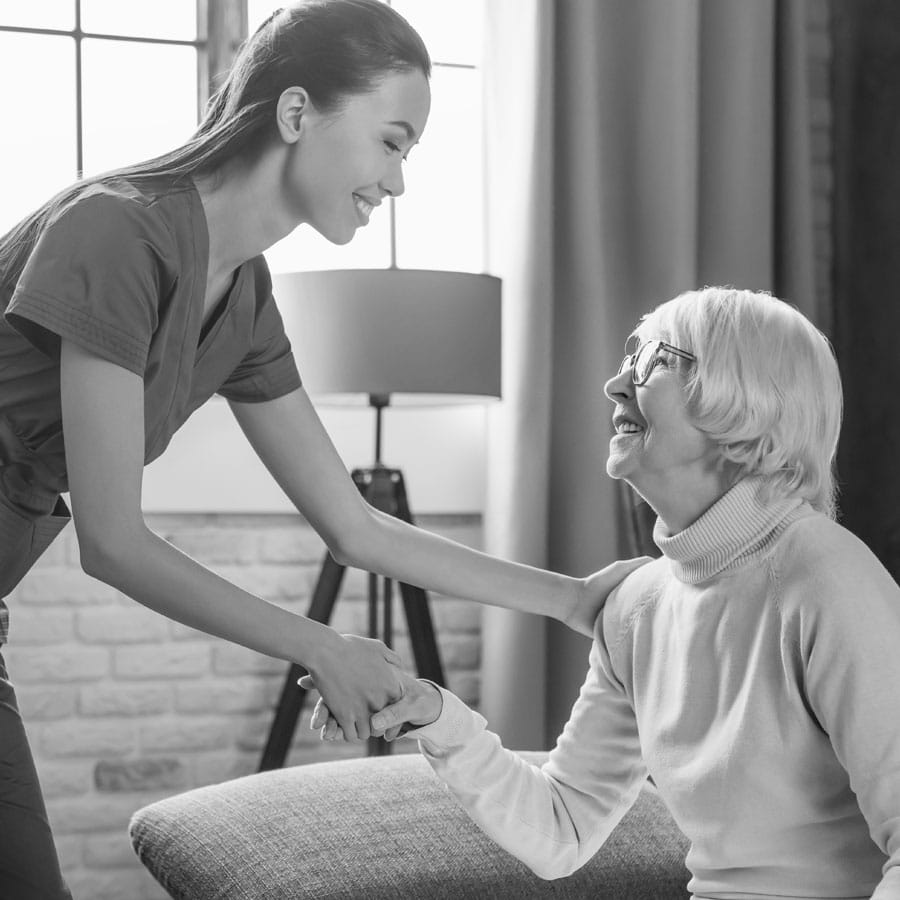Complete bladder control is a luxury most people take for granted until it becomes a chronic health issue. The ability to put off a trip to the washroom until it is practical or convenient is often never considered unless it is no longer a viable option. For loved ones dealing with seniors urinary incontinence, these are real problems that can impact daily living.
An overactive bladder becomes a genuine concern for many older adults as they find themselves less able to control urination. Urinary incontinence can strike at any age, but it becomes more prevalent after the age of 40, and the risk continues to climb with age.
The effects of urinary incontinence can vary, in some cases being quite manageable, while in others, it may indicate more severe health concerns. Addressing problems related to urinary incontinence as early as possible is essential for seniors’ overall health and well-being.
Types of Urinary Incontinence
Urinary Incontinence is in essence, an inability to hold urine in the bladder as a result of having less control. Urinary incontinence can impact seniors’ lives in different ways depending on how it manifests:
- Functional Incontinence
- Overflow Incontinence
- Stress Incontinence
- Urge Incontinence
- Mixed Incontinence
Functional Incontinence
This form of urinary incontinence is less about an inability to control the bladder and more about mobility issues, existing health problems, or other hurdles seniors may face. Functional incontinence is the term used to describe situations in which seniors have standard bladder control but may be unable to get themselves to the washroom in time. This could result from immobility due to a bad hip, lack of dexterity caused by arthritis, or poor planning due to cognitive impairment.
Overflow Incontinence
When small amounts of urine leak from the bladder, it is because it is never entirely emptied. Overflow incontinence often impacts men who have an enlarged prostate or individuals with nerve damage from diabetes or stroke. Frequently feeling the need for urination is often the result of obstructions in the bladder or weak detrusor muscles, which are responsible for pushing urine out of the bladder.
Stress Incontinence
Cases in which leaks are caused by stress or pressure being put upon the bladder are referred to as stress incontinence. This can happen with specific movements like coughing, laughing, exercise, or exertion from the abdominal muscles that outweigh the ability of the pelvic floor muscles to hold urine in the bladder.
Urge Incontinence
Sometimes referred to as overactive bladder, urge incontinence is the most common diagnosis for urinary incontinence. Seniors may find themselves suddenly struck, seemingly out of the blue, with a strong urge to urinate and they are unable to reach the washroom in time. Urge incontinence can be a symptom of more significant health problems such as diabetes, MS, Parkinson’s, Alzheimer’s, stroke, chronic inflammation, and other conditions.
Mixed Incontinence
In some cases, individuals may experience more than one type of urinary incontinence. For example, a combination of stress and urge incontinence is more common in women.
Managing Seniors Urinary Incontinence
Depending on the form of incontinence that is creating problems for older adults, there are different strategies and courses of action that can help to manage and treat the issue.
The first step should always be to consult with a medical professional who can talk things through, make suggestions, and explore any underlying causes or more significant health concerns that may be at play. Once a doctor has diagnosed the issue, they can make prescriptions and recommendations for action to help deal with the problem.

There are several strategies seniors and caregivers can implement in their daily routines to help make things more manageable.
- Lifestyle: Various lifestyle factors come into play that can exacerbate the issues caused by urinary incontinence. Preventing unhealthy habits such as smoking, alcohol abuse, and excessive caffeine intake can help lessen the symptoms. Managing lifestyle factors such as nutrition, exercise, weight, and consumption can be beneficial.
- Exercise: There are specific exercises designed to help strengthen the muscles involved in bladder control, and seniors and their caregivers can research and seek guidance into how they can start doing these exercises at home as part of their daily routines.
- Planning Ahead: If urination has become something that can create problems, one way to take back some control is to plan on emptying the bladder before a leak occurs. Seniors can plan to use the bathroom on a schedule to avoid allowing their bladders to get too full. Encouraging seniors to use the washroom regularly can be an excellent place to start, and adjustments can be made to meet individual needs and patterns as required.
Talking about urinary incontinence can feel uncomfortable for many seniors, but if it is causing stress, discomfort, and other problems on a consistent basis, addressing the issue is necessary.
Meeting with a Nurse Case Manager to discuss the concerns helps make an effective plan to take back some control. Seniors can spend less time worrying about incontinence and more time feeling confidently independent.



